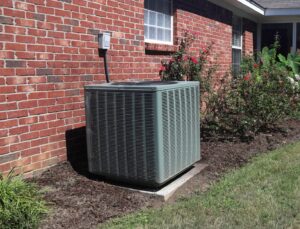Connecticut Solar Incentives (Tax Credits & Rebates)

Connecticut is one of the best states in the country for solar, especially when it comes to incentives that make the upgrade more feasible. The average price of a solar system in the Constitution State is $9,399 – $24,000 according to Angi, and with the right combination of rebates and tax incentives, you could save a lot of money on the initial installation costs. The average Connecticut homeowner could also save more than $42,000 throughout their solar system’s life.
In this article, I cover Connecticut’s solar incentives, explaining how to make the most of the state’s incentives and how much you can save.
How Does Connecticut Rank for Solar Incentives?
Connecticut offers more solar incentives than most states, which is good news because the cost per watt of going solar in Connecticut is $2.80, $0.14 higher than the national average of $2.66. Connecticut residents also have more to gain by switching to solar than the residents of most states, since the average monthly utility bill is a staggering $161.55. That’s about $44 higher than the national average.
The table below summarizes all the available solar incentives in Connecticut, including a rough estimate of how much money each could save you. The following sections will break down how each program works and what the eligibility requirements are.
| Solar Incentives Available in Connecticut | What Is It? | When Can You Get It? | How Much Can It Save You? |
| Federal Solar Investment Tax Credit (ITC) | Credits 30% of your entire system price to your income tax burden | One time: Gets applied when you file your taxes after installation | $6,300 via tax credits on average in Connecticut |
| Smart-E Loans | Low-interest financing for energy-efficient home improvements like solar panels | One time: Applies when you purchase your solar energy system | Varies depending on system size and loan details |
| Property Tax Exemption for Renewable Energy Systems | Avoids property taxes increasing after installation | Ongoing: Applies every year your system holds value | Varies depending on your system’s size and your property tax rate |
| Sales Tax Exemption for Solar Systems | Solar panels are exempt from sales tax in Connecticut | One time: You don’t have to pay sales tax when you purchase your solar system | Varies, but averages out to $1,334 for a 7.5-kW system |
| Net Metering (Residential Renewable Energy Solutions) | Allows you to earn energy credits for all overproduction | Ongoing: Always in effect | Varies based on system size, energy needs and credit rate |
Federal Solar Investment Tax Credit (ITC)
The IRS runs a federal investment tax credit (ITC) program for solar and other clean energy systems. This is perhaps one of the best solar incentives in the country, since you can claim up to 30% of your new solar system’s cost as a credit for the installation year. There is no annual or lifetime limit should you decide to make future energy efficiency upgrades.
An important point that some people miss about the ITC is that it is a nonrefundable tax credit, not a tax rebate. That means that you must owe taxes to take advantage of the incentive. You won’t receive a refund if the credit you claim exceeds your actual tax liability.
The federal ITC is scheduled to phase out by 2032 unless Congress extends it. That gives you a bit of time to claim the tax credit, but you should do so sooner than later. The longer you wait, the lower the amount you can claim.
After December 31st, 2032, this timeline for the ITC’s phase-out will start:
- 30% of your total system value for solar photovoltaic (PV) systems installed before 1/1/2033
- 26% of your total system value for solar PV systems installed after 12/31/2032 and before 1/1/2034
- 22% of your total system value for solar PV systems installed after 12/31/2033 and before 1/1/2035
- ITC discontinued for systems installed after 12/31/2034
How to Claim the Federal Solar Tax Credit in Connecticut
Claiming the federal ITC in Connecticut is relatively easy, but you should still consult a certified public accountant (CPA) to be safe. You or your tax preparer will complete and submit Form 5695 with your tax returns for the year you installed your solar panels. Don’t forget to add the tax credit to line 5 of your 1040.
Remember that this credit only applies to any federal taxes you owe. If your credit is worth more than the amount you owe in the year you have your panels installed, you can roll over the credit and apply it to your tax liability in the following year.

Connecticut’s State-Level Solar Incentives
Connecticut residents are lucky to live in a state with competitive solar incentive programs. The federal ITC is the largest incentive available to residents of the Constitution State, but Connecticut’s state-level incentives help reduce the cost of going solar even further.
The three main solar incentives available at the state level in Connecticut are Smart-E loans, property tax exemptions, and sales tax exemptions. Let’s look at each one in detail.
Smart-E Loans
Most homeowners have to finance their solar power system with a solar loan, but finding financing programs with reasonable rates can be challenging. The Connecticut Green Bank, together with Energize Connecticut, have created the Smart-E loan program to solve the problem. Going through this program makes it much easier to find low-interest loans that save you money compared to a traditional private bank loan.
You can take out a Smart-E loan to fund any of the following items:
- Solar photovoltaic (PV) arrays and systems
- Solar hot water systems
- Electric vehicle (EV) charging stations
- Other non-solar energy efficiency upgrades
Smart-E Loan Qualifications and Terms
To qualify for the Smart-E Loan program, Connecticut residents must own and live in a single-family or multi-family home with no more than four units. In 2023, the Connecticut Green Bank updated the minimum FICO credit score requirement to 580.
Smart-E Loans come in amounts from $500 to $40,000. As of 2024, rates range from 6.99% to 7.99%, and terms last between five and 20 years. Not every participating Smart-E lender will offer the longest terms.
How to Apply for a Connecticut Smart-E Solar Loan
If you meet the eligibility requirements as described above, you can apply for a Smart-E loan on the Capital for Change website. Make sure you have the details of your solar project ready. They need to meet certain efficiency requirements to be eligible for a loan.
If you’re approved, Capital for Change will set up your payment plan and disburse funds directly to your installer.
Property Tax Exemption for Renewable Energy Systems in Connecticut
Solar panels typically increase your home’s property value, which normally would mean your property taxes go up. However, Connecticut offers an exemption that excludes renewable energy systems’ value from property tax assessments.
A 2019 Zillow study found that average solar panels increase a home’s value by about 4.1%. That could add to several thousand dollars in property tax savings over your new solar panels’ life span.
How to Claim Connecticut’s Solar Property Tax Exemption
While the solar property tax exemption is a state-wide policy in Connecticut, you’ll actually participate in the program at the local level. That means the process of claiming the exemption differs based on where you live.
In general, you’ll have to apply for the exemption by filing the necessary paperwork with your local tax assessor. You should file your exemption claim before November 1st if you want the exemption to apply to the current tax year. If you’re having trouble finding your local tax assessor, you can use the spreadsheet at this link to find it.
Once you apply for the exemption, you don’t have to reapply every year. You’re done once your system has been inspected and deemed eligible for the property tax exemption.
Connecticut Solar Sales Tax Exemption
Connecticut is one of the many states that doesn’t charge sales tax on solar panels. That can help lower your out-of-pocket costs by several hundred dollars.
The average cost of solar panels in Connecticut — before any incentives or rebates — is $16,699 according to Angi. At Connecticut’s 6.35% state sales tax rate, the average solar customer saves about $1,060 on sales tax when they purchase a system in the state.
While this probably won’t make or break your ability to purchase a solar energy system, it is an easy incentive to claim, which makes it a no-brainer that all Connecticut residents should take advantage of.
Steps to Claim Connecticut’s Solar Sales Tax Exemption
You might think your solar purchase is automatically exempt from sales tax, but unfortunately, that’s not the case. To claim the solar sales tax exemption, you must submit a copy of Certification Form CERT-140 to the seller when you purchase the system.
In practice, your solar salesperson should walk you through the process. Since they’re the seller, the process shouldn’t be too difficult. However, if they don’t advise you of the sales tax exemption, you should remind them.
Which Solar Incentives Are Offered at the Local Level in Connecticut?
Connecticut’s state-level incentives are great, but they’re not the end of the story. The state also has several local incentives that city and county governments offer their own residents.
Here’s a quick rundown of Connecticut’s best local incentives:
- PACE Financing Programs: Property Assessed Clean Energy (PACE) financing lets Connecticut residents go solar with zero up-front costs using a government loan. The loan gets paid back through increased property taxes, which means that it gets transferred to the new owner if you sell your house. Local governments handle these programs, so the details and application process varies based on where you live.
- Building Permit Fee Waivers: The State of Connecticut allows local governments to pass laws exempting some renewable energy projects from permitting fees. These fees can cost anywhere between $50 and $150, depending on where you live. Your solar installation company should be able to help you determine whether your local government waives permit fees for home solar projects.
- Shared Clean Energy Facility (SCEF) Program: Connecticut public utilities providers Eversource and United Illuminating administer a community solar program that makes solar power accessible to residents who cannot or choose not to install rooftop solar on their homes. These shared facilities help reduce the state’s reliance on fossil fuels while simultaneously saving homeowners money on energy costs by letting them purchase energy from localized shared solar installations. The availability of SCEF programs and community solar varies throughout the state.
Net Metering in Connecticut – Can You Profit?
Net metering, or net energy metering (NEM), is a program that lets you sell the excess energy your solar panels generate back to the grid for a credit. You can then use that credit to offset your electric bill when your panels aren’t producing energy, like at night or on cloudy days.
The best net metering programs pay customers at the retail rate, which is the price you pay when you purchase energy from your electric company. Unfortunately, many states, including Connecticut, are moving away from full retail rate net metering as local governments react to increased customer demand for solar.
The biggest change to Connecticut’s net metering policy, which it calls the Residential Renewable Energy Solutions program, takes effect after December 31, 2027. If you install a solar system before then, you can choose between two different compensation schemes: Buy-All or Netting.
How much you get paid for your system’s excess energy production depends on what electric company you have, which rate structure you choose, and whether or not you live in low-income households or a distressed municipality. The following table breaks down the various combinations:
| Buy-All Rates ($/kWh) | Netting Rates ($/kWh) | ||
| Incentive Rate | REC Rate | ||
| Eversource | $0.2943 | Retail Rate | $0.0318 |
| United Illuminating | $0.2943 | Retail Rate | $0.0000 |
| Low-Income Adder | $0.030 | $0.025 | |
| Distressed Municipality Adder | $0.0175 | $0.0125 | |
These numbers might be a bit confusing, so it helps to have a concrete example. If you choose the Buy-All rate structure and subscribe to Eversource or United Illuminating, you earn $0.2943 per kilowatt-hour (kWh) your system produces above your home’s energy consumption. The average 7.5-kW system produces roughly 625 watts per month, which means you earn $183.94 minus how much energy your home uses.
Connecticut’s decision to replace its net metering program with the Residential Renewable Energy Solutions tariff program is causing some residents to consider adding energy storage to their system by installing a solar battery. It is unclear what the net metering or net billing policy will be in Connecticut after 2027, so having your own battery storage solution is a great way to guarantee that you’ll continue to be able to use any excess energy your system produces.
Steps to Enroll in Net Metering in Connecticut
Connecticut used to offer a net metering program, but it was replaced with the Residential Renewable Energy Solutions Program I described above in 2021. Your solar installer will connect your solar panels to the electric grid and sign you up for the program, so you don’t have to do anything yourself.
If you’re interested in seeing what the interconnection process entails, you can find the relevant information here for Eversource and here for United Illuminating.

Watch Out For Solar Incentive Scams in Connecticut
As residential solar continues to grow in popularity, you must be more careful to avoid the increasing number of solar incentive scams. Most scams are easy to avoid if you know what to watch out for, so I’ll briefly describe the three types of scams you’re most likely to encounter in Connecticut.
- Fake incentives: The easiest fraud to perpetrate—and therefore the most common type of scam you’ll see—is a fake incentive scam. The scammer solicits solar customers to apply for an enticing incentive, charging a small application fee. Of course, the incentive doesn’t really exist, and you never hear from the scammer again after you pay the application fee. You can avoid this scam by researching solar incentives and going through official channels for any incentives you apply for. Your solar installer should help you find and apply for the incentives you qualify for. (For more information, read our guide on how to avoid solar panel scams.)
- Overcharging for equipment: Some low-quality solar companies charge exorbitant prices for solar installations, preying on homeowners who don’t know any better. The average cost of a solar panel array in Connecticut is $16,699 before incentives. If you get a quote much higher than that amount, you should shop around to see if you can get a better deal elsewhere. Start your company search with this curated list of the best solar installers in Connecticut.
- Exaggerated incentives: This is less insidious than a fake incentive scam, but it’s also more difficult to detect if you don’t know what to look for. Some companies will exaggerate how much money you can save with solar panels by misrepresenting the price of their solar systems to include the money you’ll save after incentives. Make sure you get a detailed breakdown of the total cost of your solar system — including installation costs — before you sign any contracts.
FAQs about Connecticut’s Solar Rebates and Incentives
What are the solar incentives for CT?
Connecticut has several solar incentives available to its residents, including the federal ITC, property tax exemption, sales tax exemption, the Residential Renewable Energy Solutions program, and several state and local solar financing programs.
Does Connecticut have a net metering policy?
Yes, sort of. Connecticut had a net metering policy until 2021, when it transitioned to the Residential Renewable Energy Solutions program. The net billing program lets residents choose between two different rate structures that determine how they get compensated for the extra energy their systems produce. The compensation for the excess energy your panels produce varies depending on the rate structure you choose and the utility company you have.
What is the cost of solar in Connecticut?
Connecticut’s average solar system cost is $16,699. The federal ITC lets you claim 30% of the total cost of a solar system as a tax credit, which effectively brings the cost down to $14,700. Solar panel purchases are exempt from sales tax in Connecticut, which saves you an additional $1,300 compared to what you’d have to pay in a state that doesn’t have a solar sales tax exemption.






Leave a Reply